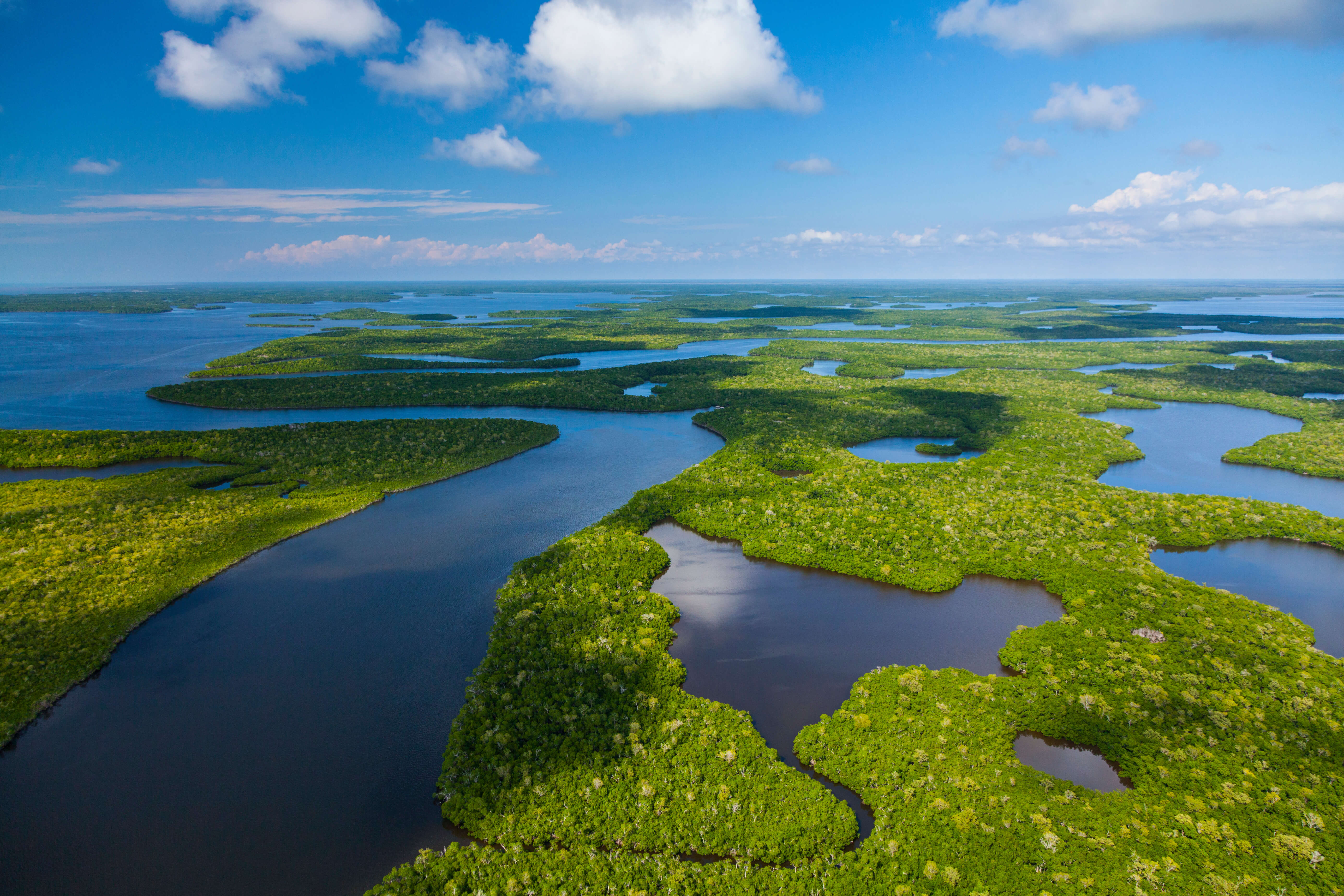How Resilient Analytics is Fighting Climate Change on Every Continent – Part II: Vulnerable Regions and New Frontiers
March 8, 2024

In the face of climate change, no region is immune, and some are even more vulnerable than others. At Resilient Analytics, a Stanley Consultants company, we're working to address the climate challenges facing South America, Africa, Australia and Antarctica's extreme conditions. While contributing less to global emissions, these regions are facing some of the most immediate and severe impacts of climate change, underscoring the need for tailored, proactive solutions.
This is the second article discussing our work to combat climate change on every continent. You can also read our first article, detailing our work in North America, Asia and Europe.
How Resilient Analytics is Pioneering Solutions in Vulnerable Regions
At Resilient Analytics, we’ve brought innovative and economically viable strategies to climate science and climate change mitigation in more than 60 countries. Many of these countries are in vulnerable areas that are often the first to experience the direct consequences of climate change, making our work pivotal to protecting these regions and their communities.
From protecting coastal communities against rising sea levels to enhancing resilience in developing countries, our approach is tailored to the distinct needs of these diverse environments.
Understanding Australian Coastline Risk
The Cost of Climate Change
$100 billion in infrastructure protection costs by 2040
Special protections for growing populations in northern and western states
The Challenge
The Australian Coastal Protection Study worked to determine national and local costs of protecting coastal infrastructure from rising sea levels and storm surges. We were tasked with delivering adaptation cost analyses for every Australian coastal city and state. This included establishing a baseline coastal protection scheme, inland protection requirements and methodologies to identify at-risk areas needing protection.
The Solution
We built upon previous U.S. coastal studies to model each projected inundation section and quantify required protection lengths and costs. We developed a comprehensive national assessment of coastal protection needs and expenses by compiling individual state data. Our modeling enabled officials to evaluate adaptation options and budgetary impacts over long time horizons. Beyond complex infrastructure, we highlighted natural solutions like wetlands restoration to enhance resilience. By quantifying costs nationwide, our goal was to jump-start urgent policy action.
Assisting Developing Countries with Adaptation in South America
The Cost of Climate Change
Greater costs for reactive policy versus proactive preparation
Increased infrastructure burdens for developing countries
Increased temperatures affecting transportation in developing countries
The Challenge
The Country Climate and Development Reports developed for the World Bank help countries prioritize actions as well as understand costs and benefits associated with reducing greenhouse gas (GHG) emissions and climate vulnerabilities. As climate consultants, we focused on vulnerability analytics for roads and bridges, including reactive and proactive resilience approaches. We introduced a rapid analysis technique generating multi-scenario risk profiles over long timeframes in Ecuador.
The Solution
To inform planning, we delivered cost estimates under varying policy and risk projections. By evaluating adaptation pathways, our expanded modeling capabilities arm officials to minimize infrastructure impacts within budget constraints. Our approach aims to enable climate-informed decision-making, even under developing country limitations.
Responding to Diverse Climate Impacts in Africa
The Cost of Climate Change
Multi-billion-dollar investments to address increased flooding threats
Multiple climate threats require careful distribution of resources
Multiple analyses required to address needs of different regions
The Challenge
The Impacts of Climate Change on African Countries Studies set out to determine the effects of climate change on countries across the continent. Additionally, our multi-sector analysis sought to determine what policies needed to be implemented to minimize damages and the funds required to address these damages.
The Solution
Our role served a larger effort focusing on the tangible effects of climate change. We worked closely with project economists and United Nations researchers to seamlessly incorporate our findings into the greater results. Through effective collaboration, we were able to improve and fine-tune existing models to predict potential damage and deterioration that transportation networks could experience in the future. These analyses allow policymakers to better appropriate limited resources where they’re most needed.
Supporting Additional Science Projects in Antarctica
The Cost of Climate Change
Antarctica's temperature has risen 1°C to 3°C in 50 years, exceeding the global average
Coastal ice degradation and reduced sea ice due to warming ocean currents
Potential for over a meter of global sea level rise with continued ice mass loss
The Challenge
The South Pole Station Master Plan faces the challenge of ensuring the South Pole Station remains operational over the next 30-50 years amid changing climate conditions. While its high-altitude, inland location reduces direct climate risks like ice melt and sea level rise, the station's remote setting intensifies vulnerabilities within its supply and operational network, particularly at critical sites like McMurdo Station. The primary task is to comprehensively assess and address climate threats at all connected operational sites using the latest climate projection data to understand potential impacts.
The Solution
To tackle these challenges, a strategic climate resilience plan is required, focusing on each component of the South Pole Station’s operational network. This plan is guided by the most recent climate models, ensuring resilience strategies are both effective and adaptable. The solution involves a thorough evaluation of the entire supply and infrastructure chain against climate-induced disruptions, especially temperature and wind speed changes. By implementing this strategy, the goal is to maintain uninterrupted operations at the South Pole Station, securing the continuity of critical scientific research in this extreme environment.
Creating Sustainable and Resilient Futures for All
At Resilient Analytics, we're excited about the possibilities that lie ahead in tackling climate change. Our advanced research and innovative, data-driven models empower decision-makers to take proactive, practical steps in shaping a resilient and sustainable future. Our focus is on the bright side of early adaptation, which promises to significantly reduce economic and environmental challenges, paving the way for a healthier planet.
Together, Stanley Consultants and Resilient Analytics are leaders in the global effort against climate change. Our solutions are designed for longevity, flexibility and sustainability. We focus on building resilient communities and businesses that can thrive in a changing climate. Our strategies encompass a broad spectrum, from urban planning to renewable energy integration, working with our clients and communities so they are well-prepared for the future.
If you’re ready to make a real impact on climate change in your part of the world, we invite you to join us in this endeavor. Partner with our team of experts for a more resilient and sustainable future for your next project.

